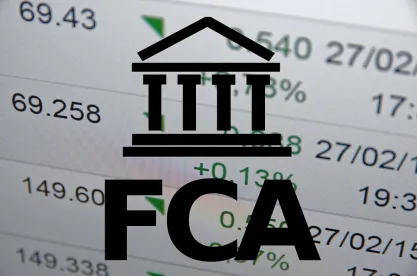Earlier today, the FCA announced that it will ask the Court for a declaration on an urgent basis to try to help resolve the ongoing uncertainties around the much publicised issue of business interruption (“BI”) insurance coverage that we have written about in the past few weeks.
Why is the FCA doing this?
It says that such action is in the public interest and advances the regulator’s consumer protection and market integrity objectives. It follows the “Dear CEO” letter to insurers on 15 April 2020.
The FCA says that it is taking Court action because of continuing and widespread concerns about the lack of clarity and certainty for those making BI claims, and the basis on which some insurers are seemingly making coverage decisions in relation to such claims.
This has of course seen a number of action groups emerging in recent week with policyholders threatening Court proceedings against the likes of Hiscox and RSA who they believe have wrongly rejected BI claims.
How does the FCA think this will help?
The FCA says it hopes to put these issues before the Court in an “agreed and urgent manner”. It accepts that the Court proceedings will not encompass all possible disputes but may resolve “some key contractual uncertainties” so as to assist insurers and insureds.
It seems that the Court action will only deal with insurers’ liability to pay out on BI claims, but not how much those insurers will need to pay in respect of an individual claim if it is covered by the policy in question. We suspect that the FCA’s intention is that a decision on liability will then lead to a private settlement of issues around quantum of losses.
The FCA has stressed that its Court action will not prevent policyholders from pursuing their own litigation through the Court, but how this might cut across or otherwise impact on the insurer action groups is not clear.
Nor will it prevent individuals and SMEs taking complaints to the Financial Ombudsman Service (“FOS”), although the FCA notes that “if we obtain a declaratory judgement, the [FOS] will be able to take it into account in considering relevant complaints”.
How will the Court proceedings work?
The regulator has so far only laid out the barebones of how the Court proceedings will work. But from what we have read, it appears that the process is as follows:
- The FCA identifies a sample of cases representative of all the most frequently used BI policy wording that have given rise to uncertainty.
- The relevant cases will then come to Court as soon possible for an authoritative declaratory judgement as to the meaning and effect of some BI policy wordings where there remains disputed uncertainty.
- The FCA has already communicated with a number of insurers, and the Association of British Insurers (“ABI”), so far as concerns its proposals for the Court proceedings.
- This group of insurers seemingly comprises firms that have already made decisions about the application of BI policy wordings on claims, and others that are considering similar questions around policy coverage that could give rise to uncertainty in the future.
- The FCA has written to these insurers and expects them to clarify their position by no later than 15 May 2020 as to whether they believe their policy wordings for BI losses arising other than from property damage provide insurance cover. Other insurers may be added to the FCA action in due course.
We can therefore expect to hear more from both the FCA and the ABI in the coming days and weeks as to the progress of the Court proceedings and more detail as to how these may look and feel.
Watch this space for more as further details emerge
What else has the FCA announced today?
At the same time as announcing its proposals on the BI insurance Court proceedings, the FCA has proposed a series of measures designed to support both consumers and small businesses who hold insurance products and who are facing other issues as a result of COVID-19.
The guidance and proposals published by the FCA are intended to provide consumers with temporary support in the light of the exceptional circumstances arising from COVID-19. This follows steps that the FCA has already taken so far as concerns credit cards, overdrafts and personal loans. The guidance sets out how the FCA expects insurers and intermediaries to:
- ensure insurance products continue to offer value and remain appropriate for customers having regard to the impact of COVID-19 and taking into account the firm’s ability to provide the benefits promised in the policy (for example, boiler cover insurers may not be able to offer an annual service as part of a policy or liability insurance may no longer be relevant to closed businesses);
- help individual customers who might be finding it difficult to pay their premium or meet their premium finance payments as a result of COVID-19 (for example, allowing customers premium payment holidays, waiving fees or relaxing charges or interest incurred from this payment).
The FCA is seeking comments from firms on its proposals to help customers in temporary financial distress by 5 May 2020 and on those to assess the value of insurance products by 15 May 2020. Confirmation of the regulator’s proposals is likely to come into force very shortly thereafter.




 />i
/>i
